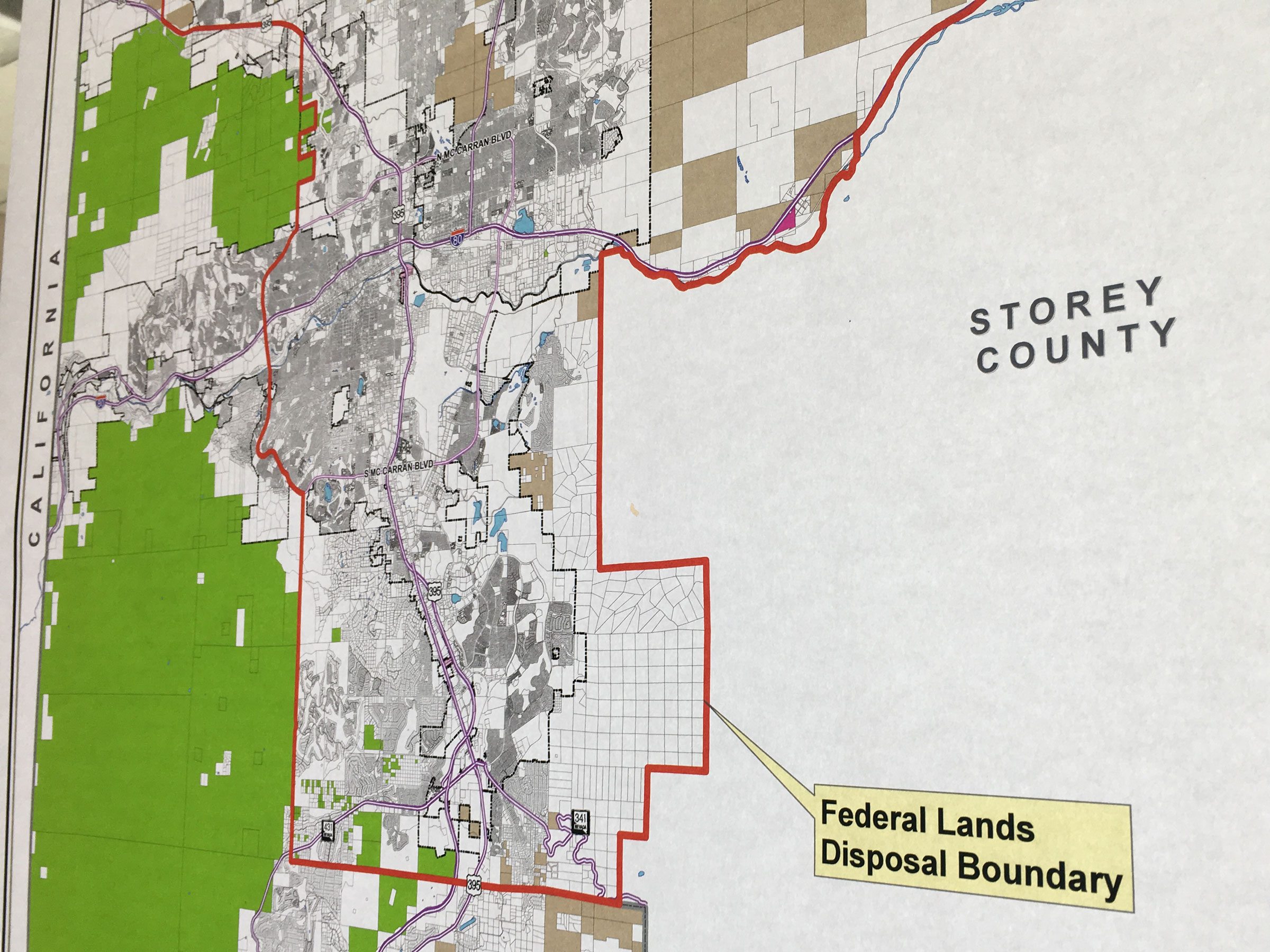“If we don’t continue to grow, we go backwards.”
Growth must continue, and the city of Sparks is one of two main areas where that growth will occur. That’s according to Sparks Mayor Ed Lawson.
“The region is projected to add more than 100,000 new residents by 2030, and quite frankly, we are running out of land,” he said yesterday as part of his annual state of the city address. “The new residents will require employment, housing and recreational opportunities.”

He said spotty boundaries mean federal land near Sparks should be auctioned in order to be developed. That’s what’s proposed as part of the Truckee Meadows Public Lands Management Act, which Lawson in January said he was continuing to push after it had been stalled during the pandemic.
“There are checkerboard lands that within the region are federally held and therefore unable to be developed,” Lawson said. “The lands bill would make certain that federal land available for disposal through an auction process which would then make it available for development.”
He said he wants to encourage developers to build more housing and warehouses, as well as increasing density within the city.
“We would love to develop the industrial areas of Sparks where these businesses can move to and then revitalize the area encouraging residents and developers to build homes, shops and restaurants along the river district,” he added.
Lawson said progress on the bill has been limited, and he hopes for more action late this year or next year.
“The area of disposal is much smaller,” he said in January. “We’re asking for less land. There’s some strategic places the U.S. Forest Service wants to keep. The BLM wants to keep a couple strategic places. There’s an area of environmental concern to the east of Sparks. It’s roughly 10,000 acres. We were not going to touch that.”

Conservation groups are opposed to the lands bill.
“The mayor’s 20th-Century thinking is not the solution for ratepayers and taxpayers. It is a solution for a select group of folks who will profit quickly,” said Kyle Roerink with the Great Basin Water Network. “What are the long-term implications for electricity, sewer, roadways, essential governmental services, and — of course — freshwater supplies. While developers pick up some short-term costs, the lands bill model imposes long term needs that aren’t covered by merely expanding the property-tax base.
“The lands bill model never considers the structural defects in our tax system — which ultimately leads to regressive harms foisted upon folks who can least afford it,” he added.
Lawson said 83% of Washoe County is owned by the federal government and auctioning some of that land adjacent to Sparks only makes sense.
“Unfortunately the way it works in Nevada we have to continually grow or we die where our property tax system works,” he said.
He also mentioned the update yesterday by Brian Bonnenfant with the University of Nevada’s Center for Regional Studies. Bonnenfant said development in south Reno will soon no longer be possible due to land limits. Future growth will be in Sparks and Reno’s North Valleys.
“The predictions for us in the future are pretty grim as interest rates are going up. Being able to buy a house is getting harder and harder,” Lawson said. “Our average median house in the area is $609,000, and that requires about $140,000-150,000 a year of income to purchase that.
“Our average median household income is at $86,000, so we have a structural problem that has to get fixed. If we don’t continually grow, like I said, we go backwards, and then that affects our services.”
He said he wants to go to the Nevada Legislature to fix what he called a problematic property tax structure.
“For example, my house costs $150,000. The guy across the street buys for $450,000, [and] he pays the same amount of taxes I pay,” he said. “That doesn’t seem inherently fair to me, and it’s a structural deficit within the state of Nevada.”


